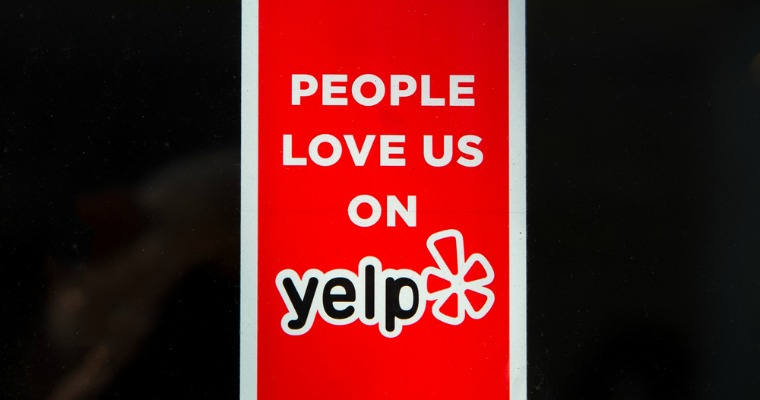Editor note: This post continues the conversation of small business’ experiences with Yelp after SEJ’s Matt Southern wrote about their pending legal issues.
The FTC has revealed that they have received over 2000 complaints to date about Yelp’s practices, including allegations that Yelp buries positive reviews and displays negative ones as a selling tool, forcing more businesses to pay for advertising.
Yelp is supposed to be the last bastion on the Web for honest reviews. It’s a place where consumers are allowed to honestly and thoughtfully discuss their experiences with a business, and help others find services that will be useful to them. The star system keeps reviews easy to read, and multiple users posting about a location seem to give the reviews some credibility.
But not all businesses are pleased with how Yelp presents their work.
Yelp has been accused of shielding defaming comments, forcing businesses into paying for control over reviews, and a host of 2,000 other complaints filed with the FTC since 2008. With problems mounting over anonymous reviews and poor business practices, it’s looking less and less like Yelp is as user-friendly as they have always claimed.
Yelp Says: “You Can’t Pay Us to Remove or Reorder Your Reviews.”
Yelp, for its part, says that they separate the content and revenue side of the business. They aren’t clear on what that means for businesses and end users, which is exactly the point.
If a business like Joe Hadeed’s carpeting in Virginia suddenly shows up on Yelp, the owner may not even be aware of it. Yelp collects business data from third-party vendors, and from user input. This means there is virtually no safeguard for businesses hoping to shield themselves from poor reviews. You can’t opt out of the process, you can’t ask for removal, and you have little control over which reviews feature on your page, unless you pay for the privilege.
At least that’s the implied message. Yelp writes that they do not accept payment to remove reviews in their FAQ, but several business owners have claimed that Yelp sales people use negative reviews to drive conversions. The pitch involves paying for more control over a page, using terms like “controlling ad space.”
Some, like 64-year-old Randy Boelsems, say that the sales people will continually harass a business owner with offers to move bad reviews and buy up ad real estate for more control over a Yelp page. This pressure is very real. Business owners like Joe Hadeed in Virginia have even tried to fake reviews to raise their positivity. He tried to sue Yelp to reveal the identities of the defamers of his business, and the courts eventually ruled in his favor.
The battle between what is real and fake leads to defamation suits too. Another Virginia case saw a disagreement over contract work stir up a legal battle between a contractor and his customer.
Solicitation And Sales Practices
Wall Street Journal reported that the Yelp receives roughly six subpoenas a month that request reviewer information. Many of these relate to businesses who feel they have been unfairly defamed, or poorly reviewed. When these owners pay for the privilege, Yelp is quick to help them establish a greater presence on the website, even selling ad space to them on competitor pages. If these owners cancel, Yelp is just as quick to push those good reviews into the “not recommended” category.
Yelp seems to be using their power as a database to force businesses into paying them. First, they recruit you without your consent. Then they mask your best reviews, effectively creating a pay-wall where business owners must pay out to retain some integrity.
Some Changes at Yelp
Yelp has quietly made a few recent changes to its design, layout and verbiage. Back in November, the link to the filtered reviews, which appeared on the bottom of all reviews changed from “Filtered Reviews” to “other reviews that are not currently recommended.“
Last month Yelp also changed the layout to the review pages by showing scrollable images on top.
Is Yelp Guilty of Abuse?
As a reputation management expert, I deal with clients that have Yelp issues on a daily basis. I analyze Yelp results and have a great deal of knowledge about how the Yelp filter works. I do not think that Yelp would purposely filter reviews of those who refuse to advertise. However, this could have been a practice done a few years back and it is also possible that a few sales people have tried to say this to potential clients to gain their business.
People that have seen their reviews get filtered or unfiltered after refusal to advertise could have been just a coincidental incident. I hate to come to Yelp’s defense, because I dislike many of their practices, but I do not think that Yelp would risk so many lawsuits and their public image just to close a deal.
A Possible Solution
If anyone from Yelp or other review sites should happen to read this, I do have some recommendations for them on how they could change things to keep their customers happy:
- Display the full name of the poster, including their Facebook link, if they have chosen to link it.
- Require cell phone authentication or some sort of other authentication to validate the reviewer’s identity.
- Disclose the user’s identity, including email, IP address and any other data in the business owner’s dashboard or at least when a business owner requests it.
- Provide an arbitration service for a small fee to resolve disputed reviews. The reviewer should have evidence such as a receipt or an agreement that they have been to the business or used their services. If not the review should be removed. The business owner should be able to submit documents to prove whether the review is false. This service may also be outsourced to a few authorized companies, such as attorneys or reputation management companies.
What are your thoughts on Yelp’s practices? How would you keep Yelp honest for businesses and reviewers?
Featured Image: Deposit Photos


